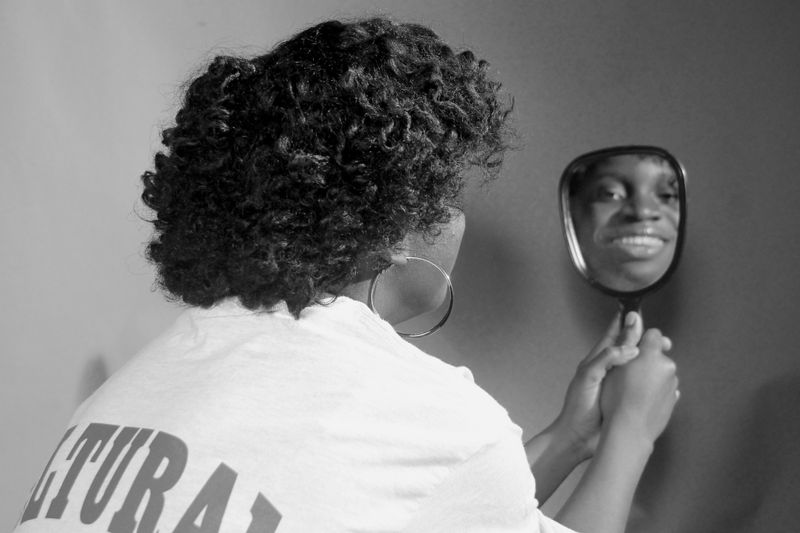We Are America
Brownies and Oreos
By Lynsey

Lowell High School, Lowell, Massachusetts
My skin color is like a dark chocolate brownie and oreos. Growing up in Haiti I was very ashamed of my skin color. In my country discrimination is very common. People with lighter skin often get treated better than people with darker skin. If you have lighter skin, people assume the best, that you have money, that you are a good person. People with lighter skin often get better jobs and get into better schools. In contrast, people with darker skin often get treated worse. People often assume that we are poor, dishonest, and untrustworthy.
In middle school I always had a hard time because I was in school with a bunch of teenagers who weren’t very mature. Kids with lighter skin wouldn’t want to sit with me and would call me ugly and “Tet krot” which in Haitian Creole means bald headed. One particular teacher would always check my desk before a test to make sure that I was not cheating. What bothered me was he only checked the desks of the kids who had darker skin.
I grew up feeling so ashamed of my skin. I even ended up discriminating against people with the same skin color as me. I grew up treating people with a lighter skin color better than myself.
When I was eight, during the summer vacation, I was sitting on the stairs at my aunt’s house. One of my uncle’s cousins, sat next to me and asked me a question that would later change my life. “Between you and your cousin, who do you like better.” I answered without even giving it a second thought: I liked her better. He asked me why. I told him that everyone likes her better. He then asked me why. And I told him she had a nicer skin color than me. Her skin was like caramel with the sun gazing on it, it seemed like the perfect color.
When I was 13, I came to the United States with the hope of a better education. I started in 8th grade. Here too, I faced discrimination. One day during science class, students started having a conversation about last names and there was this one student who had the same last name as me, but very different skin, her skin was like wheat with the moonlight kissing it. The other students were talking about how our names were similar. The other students were laughing, but the girl was crying. She told her friend that they were bullying her by comparing her to me, that she was ashamed. She told her friends my skin was dirty and not like hers. Her friends ended up apologizing to her.
My high school in Florida felt very segregated, at the lunch tables, black and white students sat separately. I moved to Lowell for 10th grade. At my new school it was very different. Everywhere I would go I would see groups of students of all different colors hanging out as real friends. When I saw how the students acted, it was like a door opening, an invitation showing me that I didn’t have to segregate myself. Here I felt comfortable speaking to everyone.
In 11th grade one of my friends and I were taking pictures during Advisory. She took a picture of me in the sun, and my skin looked really dark and my teeth really white. I told her to delete the picture. I thought my face was too dark. But she said, “No, this is one of the most beautiful pictures, “black is beauty.” These words got me thinking. It made me think about how stupid I had been all these years thinking that my skin was a bad thing. I realized that just as I love to eat dark chocolate brownies and oreos I’ve learned to love my beautiful skin.
© Lynsey. All rights reserved. If you are interested in quoting this story, contact the national team and we can put you in touch with the author’s teacher.